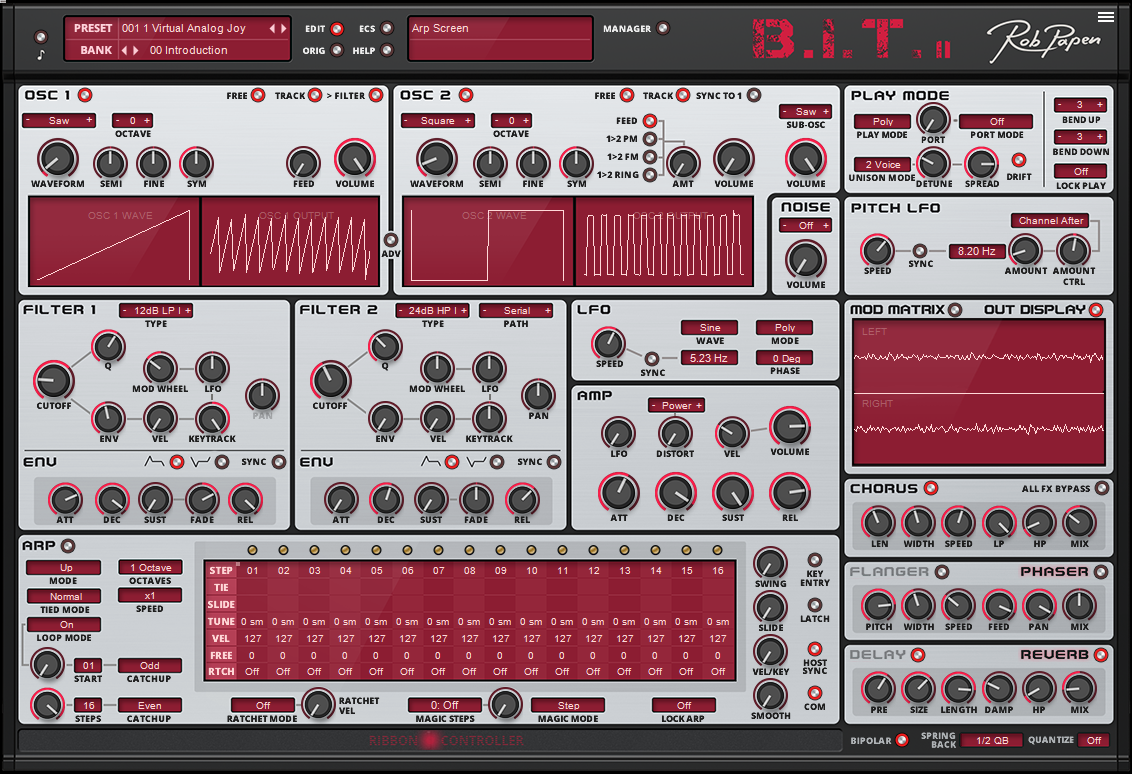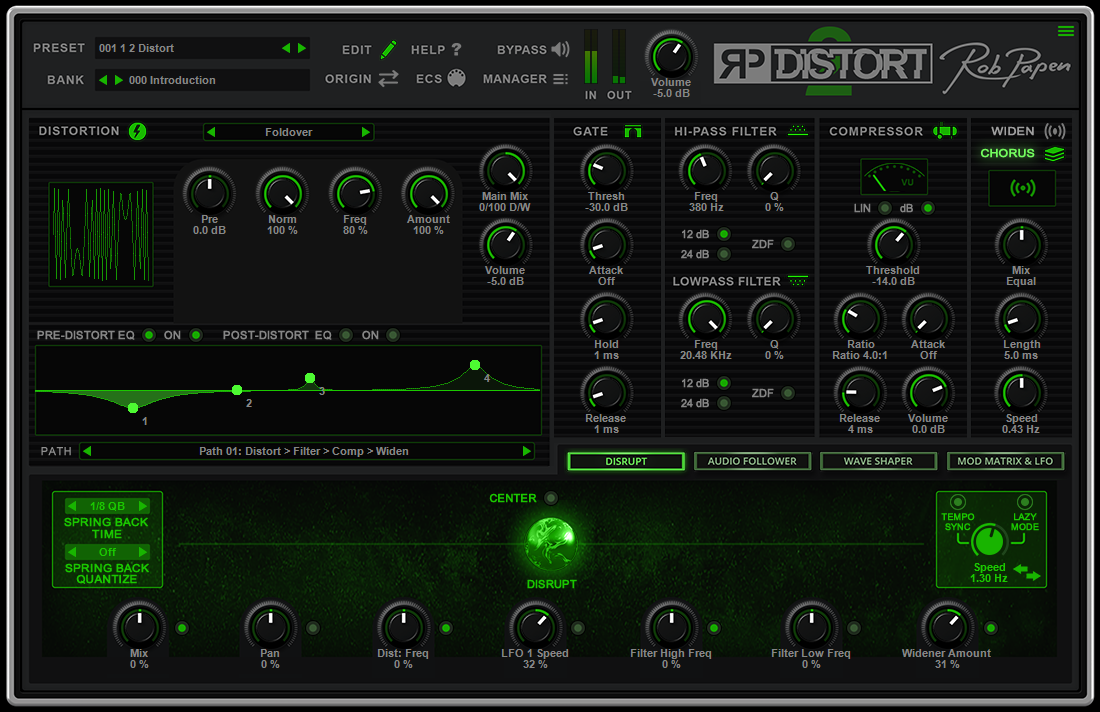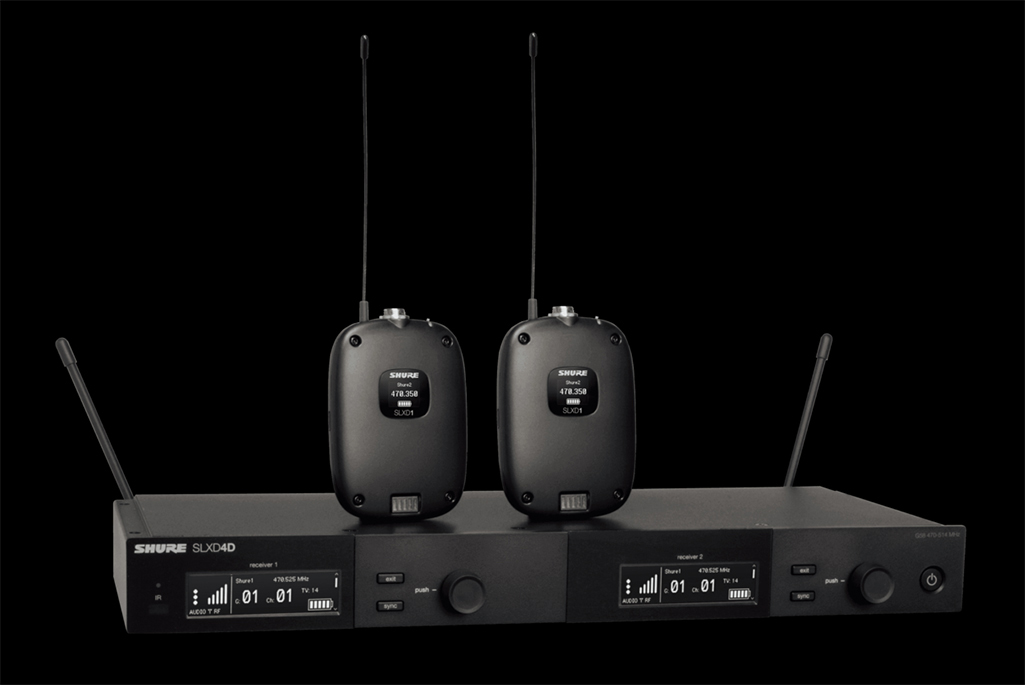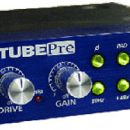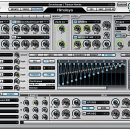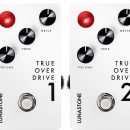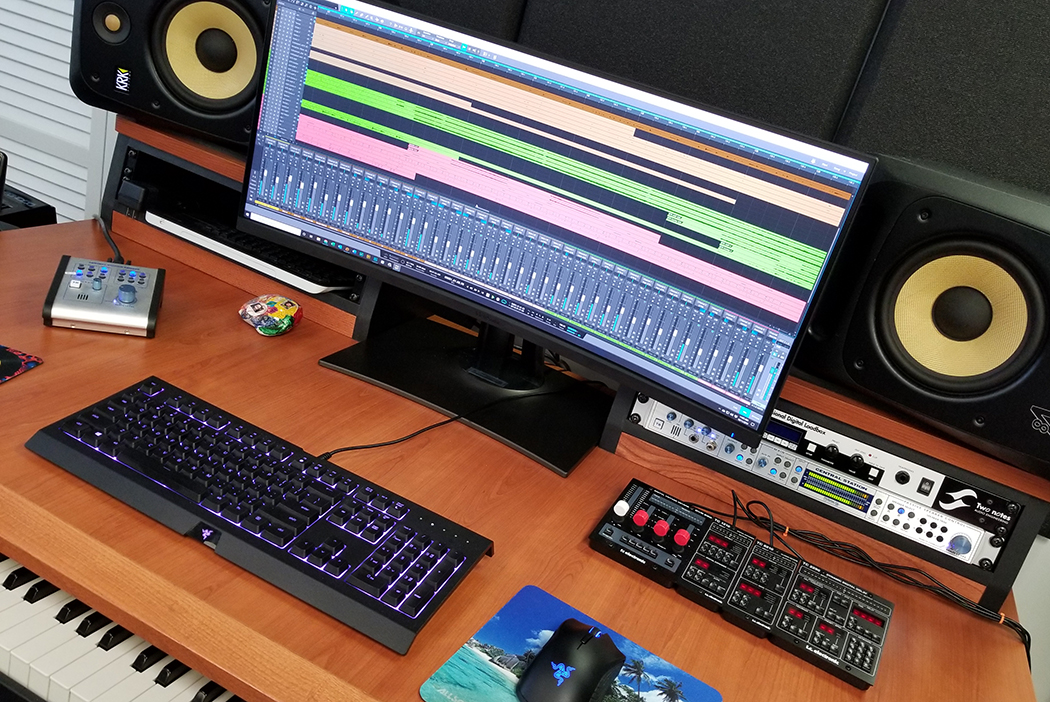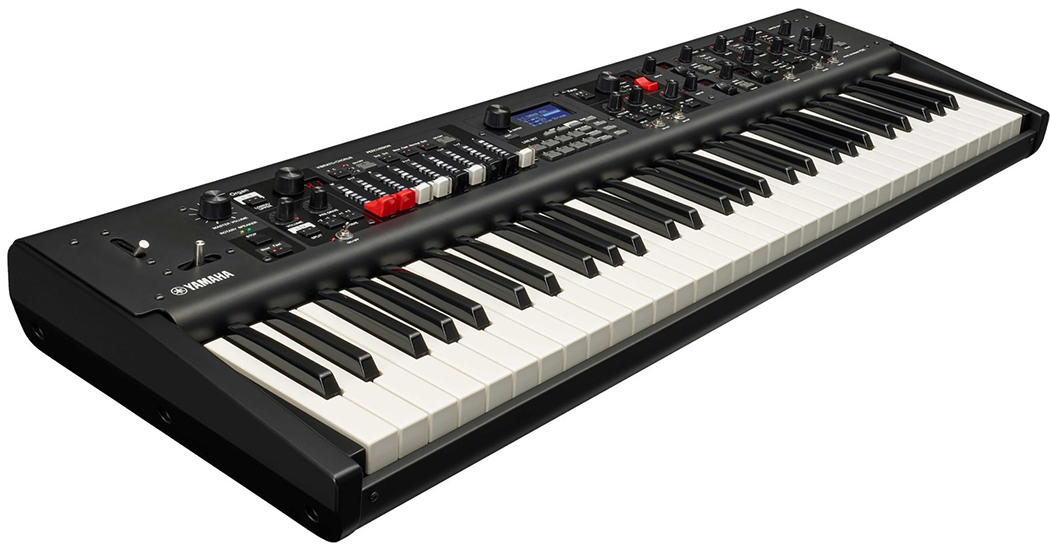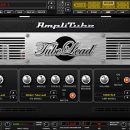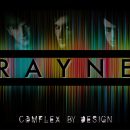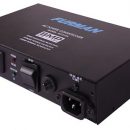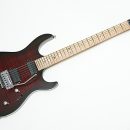ECHT, THE NETHERLANDS: virtual instrument and effect plug-in developer Rob Papen Inspiration Soundware is proud to announce availability of BIT-2 as an analogue synthesis-modelled virtual instrument — with which it takes another trip back in time to take its namesake plug-in predecessor (released in 2019 to widespread critical acclaim with outstanding audio quality) to the next level with numerous new and creative features — as of April 27…
As an apt acronym if ever there was one, BIT stands for ‘Back In Time’. This alludes to the fact that the BIT-2 virtual instrument plug- in — like its namesake predecessor — mainly focuses on modelling analogue synthesis from a pre-digital era that has a still-sought- after charm of its own, one which had not been covered before BIT by the Rob Papen brand, whose virtual instrument products previously combined the best of analogue modelling with hybrid synthesis so successfully. Since self-confessed synth freak and world- renowned sound designer Rob Papen himself had started working with synthesizers at the tender age of 15 when purchasing an analogue Korg MS-20 semi-modular monosynth and accompanying analogue SQ-10 sequencer way back when, taking this trip back in time — and now a second time — makes perfect sense, both business-wise and otherwise.
On the face of it, BIT-2 has no (virtual) patch cables, but make no mistake: it is modular in nature. Indeed, its MOD (modulation) MATRIX is used for patching, though several connections — such as LFO (Low Frequency Oscillator) and ENV (envelope) to the OSC 1 and OSC 2 parameters — can quickly be made when switching on the smart ADV (advanced) panel below the oscillators.
Oscillators are actually where boosting BIT-2 begins, with additional Super Saw (1/2/3) and Super Square (1/2/3) waveforms generating a three-oscillator sound within one oscillator to provide even more flexibility for sound creation. Conversely, though, it made sense to leave BIT’s ability to modulate OSC 2 with OSC 1 in several ways — expanding the sound palette profusely with PM (Phase Modulation), FM (Frequency Modulation), and RING (modulation) — as before. But boosting BIT-2 further still are its two top- notch analogue-modelled filters — FILTER 1 and FILTER 2 — expanded to include new types and modes for further enhancing its sound-shaping capabilities, while its AMP (amplifier) section has also been expanded to include multiple distortion types that are all at a ‘per voice’ level to make them much more usable — avoiding any ‘ugliness’ if playing chords, for instance.
Additions are also to be found in BIT-2’s ARP (arpeggiator)/sequencer section, including an ability to dynamically change the start STEP and end STEP number, resulting in interesting patterns that can be changed in real time, as well as the MAGIC MODE parameter that adds musical variation to the active ARP or sequencer. Saying that, the ARP/sequencer can now also work as a modulator, thanks to an additional FREE row that can be used to modulate other parts of BIT-2 in conjunction with the MOD MATRIX.
BIT-2 benefits from the addition of the RIBBON CONTROLLER section located at the bottom of its GUI (Graphical User Interface). It allows users to control several parameters at once using a mouse or external MIDI (Musical Instrument Digital Interface) controller, and — unlike a hardware ribbon controller — also has a tempo-based SPRING BACK feature with QUANTIZE and BIPOLAR mode. Performance-wise, PLAY MODE now features a LOCK PLAY function — helpful if using an MPE (MIDI Polyphonic Expression) keyboard.
Expanded effects really represent the finishing touch to BIT-2 with some superb-sounding additions alongside other improvements, including Rob Papen’s proprietary REVERB that sounds superb, so no need — necessarily — to add reverb externally.
Ending where we began, BIT stands for ‘Back In Time’ but when working with the boosted BIT-2 it could just as well be taken to mean ‘Be Inspired Today’ — thanks to the analogue synthesis-modelled virtual instrument’s improvements and additions. As Rob Papen proudly points out by way of ending on a hands-on high note, “We now have animated dials in BIT-2, more modulation slots and modulation options, and last, but not least, many new presets by both myself and others have been included in this update... enjoy!”
BIT-2 is available as a 64-bit AAX-, AU-, VST- and VST3-compatible virtual instrument plug-in for Mac (OS X 10.13 or higher) and as a 32- and 64-bit VST- and VST3-compatible virtual instrument plug-in for PC (Windows 7 or higher) — with 64-bit AAX compatibility available for PT 12 or higher (PC) — at an introductory promo price of €74.00 EUR/$74.00 USD until June 1, 2023 — rising thereafter to its regular price of €99.00 EUR/$99.00 USD — from authorised Rob Papen resellers worldwide or as a download directly from Rob Papen itself for the same pricing from here: https://www.robpapen.com/bit2.html (Owners of BIT can upgrade to BIT-2 at an introductory promo price of €26.00 EUR/$26.00 USD until June 1, 2023, rising thereafter to its regular price of €35.00 EUR/$35.00 USD.)
BIT-2 is included in the latest version of Rob Papen’s all-encompassing eXplorer-8 bundle (https://www.robpapen.com/explorer-8.html) at no additional cost, so existing owners only have to download the latest installer and run it to add BIT-2 to their Rob Papen virtual instrument and effect plug-in collection.
For more in-depth info, including some superb-sounding audio demos, please visit the dedicated BIT-2 webpage here: https://www.robpapen.com/bit2.html
Watch an insightful introductory BIT-2 video — featuring a voice-over from Rob Papen himself — here:

